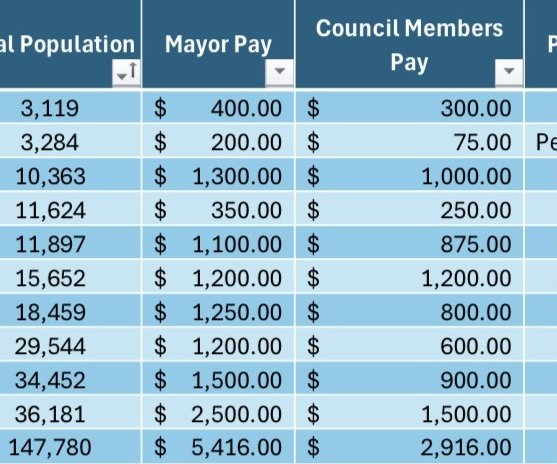With school starting back, now is a good time to reflect on the hard work that teachers dedicate to educating our children. Teachers across the state not only educate over 1.7 million students from kindergarten through 12th grade, but also serve as mentors, after-school tutors, coaches and supervisors of extra-curricular activities, among other roles.
Teacher pay has been a hot topic in certain states this year, with strikes earlier this year in Arizona, Kentucky, Oklahoma, and West Virginia over issues such as low wages and pensions. So how does Georgia compare to other states?
Georgia nationally
Using data collected and reported by the National Education Association (NEA), we can look at how Georgia compared to other states in the 2016-2017 school year.
The average teacher salary for all 50 states and Washington, D.C. was $59,660 during the 2016-2017 school year. Georgia ranked 23rd highest with an average teacher salary of $55,532.
The highest-paid teachers were in New York, California, and Massachusetts with average salaries of about $79,700. The lowest-paid teachers resided in Mississippi ($42,925), Oklahoma ($45,292), and West Virginia ($45,555). With the teacher strikes this year in Oklahoma and West Virginia over compensation, these rankings are not very surprising. Some differences reflect cost of living.
Regional ranking
Now we will focus on Southern Regional Education Board (SREB) member states to see how Georgia compares to its neighbors.
Comparatively, Georgia ranked third in teacher pay in FY2017, and is projected to remain the third highest-paying southeastern state in FY2018. The average salary of SREB state teachers was $51,242, 86 percent of the national average teacher salary.
The FY2017 salaries and overall national rankings of the SREB states are listed below.
State Salary US Rank
Maryland $68,357 7
Delaware $60,214 14
Georgia $55,532 23
Texas $52,575 28
Kentucky $52,338 29
Virginia $51,049 34
Alabama $50,391 35
Tennessee $50,099 36
Louisiana $50,000 37
S. Carolina $50,000 38
N. Carolina $49,970 39
Arkansas $48,304 42
Florida $47,267 45
W. Virginia $45,555 49
Oklahoma $45,292 50
Mississippi $42,925 51
Teacher pay scale,
local supplements
The state automatically funds "Training and Experience" (T&E) pay increases that increase teachers' pay as their years of experience, certifications and educational attainment advance. However, many local districts also pay a "local supplement" on top of the state-funded portion of a teacher's salary.
For example, a teacher with a bachelor's degree and five years of experience earns a $37,253 salary from the state, not including additional funds for retirement and health insurance benefits. However, a school system may pay a supplement to make salaries more competitive.
Local supplements vary
The Georgia State University Fiscal Research Center studied variation in local supplements in 2008, and showed that the 10 districts with the highest-paid teachers contributed an average local supplement of about $7,162. On average, the teachers in the high-paying districts had 13.6 years of experience and 65.7% had degrees or certification more advanced than a Bachelor's degree. In comparison, the 10 districts with the lowest-paid teachers chipped in only $1,813 on average. Their teachers had an average of 12.1 years of experience and 44.8% had advanced degrees.
Discrepancies in local supplements are due to many factors, including differences in cost-of-living between districts, availability of local revenues from property taxes, job market competition for teachers, as well as educational attainment and experience of teachers.
Spending on students
It is important to remember that teachers' salaries and benefits represent the majority of education spending. So investing in teachers' pay is also an investing in students.
Georgia ranked 33rd in its expenditures per student in FY2017 at $10,010, while the national average was $11,642 and the SREB average was $10,799. Georgia is about the middle of the pack when compared to its SREB neighbors, spending the eighth-highest amount per student.
Since FY2017, state funding for education has continued to increase, with $160 million to the teacher pay scale in FY2018, over $166 million to eliminate QBE austerity in FY2019, and over $116.5 million additional state dollars for equalization in FY2018 and FY2019 combined. K-12 education makes up 40 percent of the state budget with all educational levels drawing 54 percent.
How does Georgia rank in terms of teacher pay?








